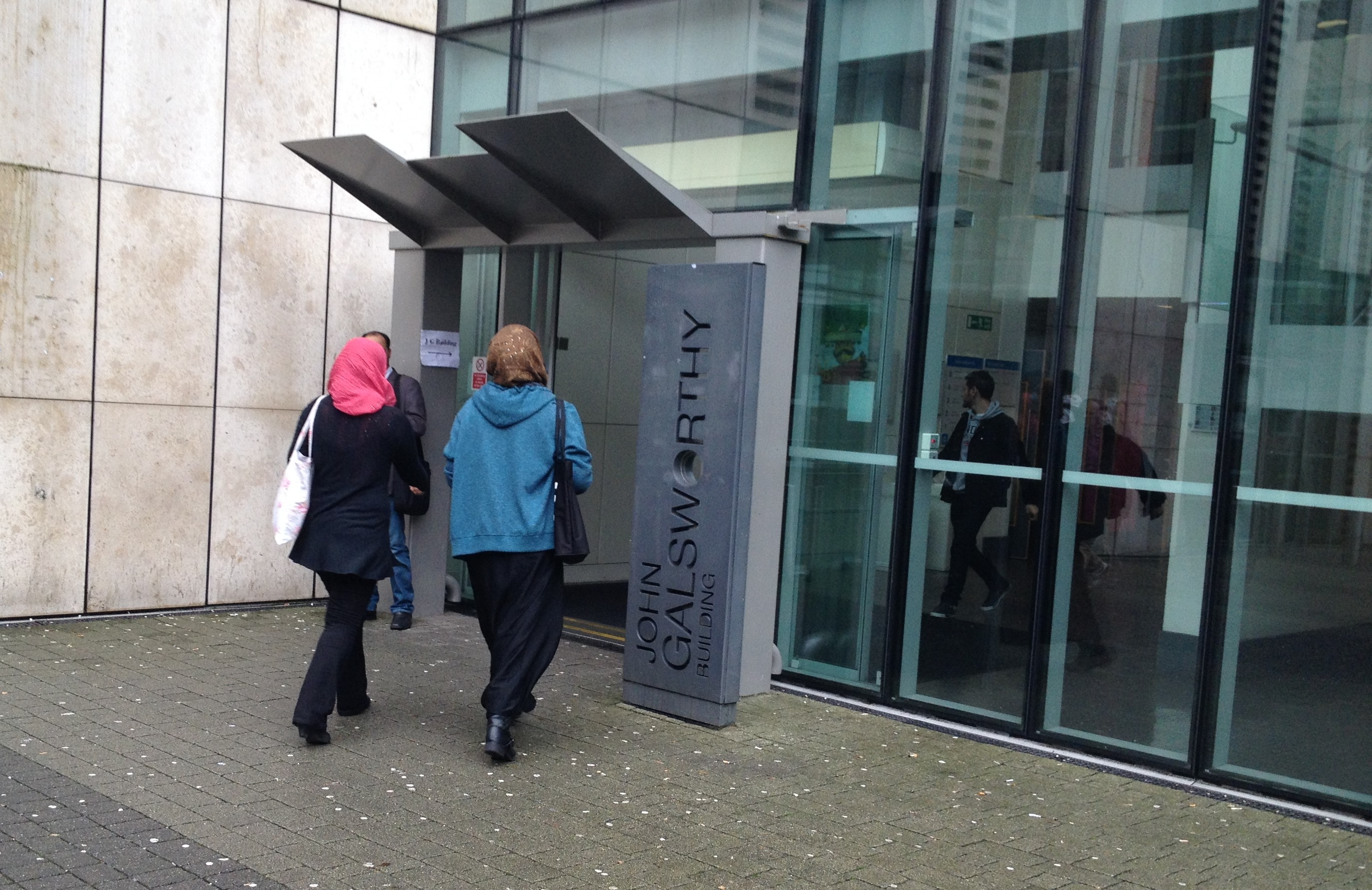Despite a recent report that found Muslim women in Britain were especially vulnerable to Islamophobic abuse, female Muslim KU students say they ‘feel safe’ at the university and in the community.
Statistics show that anti-Muslim hate crimes have decreased overall in London from August 2012 to August 2014. But certain boroughs of London, including Kingston upon Thames, have seen a 40% increase in anti-Muslim hate crimes, according to Metropolitan police.
But in interviews with nearly a dozen Muslim students at Kingston University, the majority said that they have not experienced any prejudice, ‘feel isolated’ and find the community ‘welcoming’.
Afia Mannan, 18, Computer Science student and member of the KU Ahmadiyya Muslim Society (AMSA), has lived in southwest London for 11 years and has never experienced prejudice. “I don’t see any segregation or prejudice at all, Kingston is a friendly community,” she said. “I see Muslims speaking to people from many different backgrounds.”
Muslim women targeted
The report by Teesside university published in June 2013, assesses the anti-Muslim hate crimes in the UK over a one-year period. The report finds that: “the majority of victims were female and, of these, over 80 per cent were women who were easily identifiable as Muslim, for example, wearing the hijab or niqab.”
Amina Taki, 20, committee member of the Kingston University AhlulBayt Islamic Society, said that although she has not experienced discriminatory remarks at KU, she has witnessed abuse in West London, where she lives with her family.
“We have faced two incidents where people stopped by us in their car, lowered their windows and started swearing at us for no reason saying ‘You Muslims, go back to your country’,” she said.
Taki said she feels the atmosphere at Kingston is largely tolerant, aided by the large number of Muslim students and overall levels of integration and diversity.
Warda Mooge, 20, pharmacy student has not experienced any problems on campus and said that she ‘feels great’ and the campus is ‘very friendly’. However, she thinks the Kingston area is different:
“I’m from Northampton and there’s not much diversity there. I’ve noticed that they’ve always looked at Muslims or women covered up in a different way,” she said. “In London, because its multicultural, I think it’s hidden.”
Mooge recounted just one encounter with a man on a Kingston bus, who had his hand on the bus stop button, and said to Mooge, as she sought to press for her stop, “No, don’t touch me.” Such minor incidents of low-grade antagonism can make daily life challenging for Muslim women who veil, though they do not rise to the level of hate crimes.
Get help and report it
Findings from the Teesside university reports also suggest that there is reluctance in reporting anti-Muslim hate crimes to the police.
TellMama is a service in the UK that measures, records and analyses anti-muslim hate crime incidents to ensure that victims of abuse received appropriate support.
Bharath Ganesh, researcher from TellMAMA, said that the increase in anti-Muslim crimes could just mean that more people are reporting incidents. “I think the best thing that can be done is to speak up and report things as it happens, so making sure to be confident in going to the police,” he said.
“Now the Metropolitan Police are taking anti-hate crimes seriously and if you’re not confident in reporting to the police, you should at least report it to organisations like us that will forward the case to the police,” he said.
Hate Crime Awareness Week is from the 11th October to the 18th and the purpose is to tackle hate crime issues by raising awareness towards hate crimes. This could be done locally through reporting, and supporting people going through these problems.

